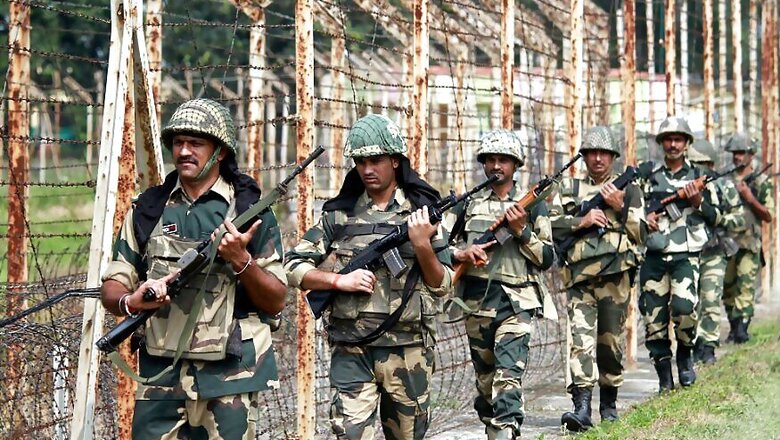
views
New Delhi: A sense of uneasy anticipation hangs over the thin autumn air in New Delhi these days. The Narendra Modi regime may well have played the ultimate brahmastra of surgical strikes against Pakistan avenging the Uri attacks, but the questions remain: What now, what next?
“Well, the lines have been redrawn and there is no going back," says a top government official in the know who is also closely involved in charting out the new Indo-Pak rules of engagement. India has clearly demonstrated to Pakistan that our tolerance level has come down, there was a certain sense of predictability that had seeped into the Indo-Pak narrative. “The surgical strikes have disrupted that predictability," the official said.
FULL COVERAGE: India's Surgical Strikes across the Line of Control
“We don’t want war. But we must also be able to exhibit that we aren’t a tantrum-throwing Republic. With these strikes, we have made Pakistan aware that we don’t subscribe to the sanctity of LoC. Now they will have to go back to the drawing board and reassess their strategy, which had not happened since Bangladesh Liberation War of 1971," he told this reporter.
The conversation also revealed that India had decided to push the envelope with Pakistan since August 15 itself when the PM raised the Balochistan issue from the ramparts of Red Fort. There was a realisation even before the Uri attack on September 18 that the rules of engagement with Pakistan had to be changed. One part of the strategy was to keep SAARC nations together, especially the ones who are convinced of Pakistan’s role as an exporter of terrorism.
The Indian establishment is also keenly monitoring the changing equations between Jamaat-Ud-Dawa (the charity that operates as a front for Lashkar-e-Toiba) and the Pakistani army. Post the Indian surgical strikes, there were reports from Pakistan that JuD top honcho Hafiz Sayeed has been extremely upset with the Pakistani army. LeT, it is learnt, suffered the maximum damage in person and property during the surgical strikes. Besides, the tenure of Pakistan Army chief Raheel Sharif – a very popular public figure – is coming to an end in November. It was these variables that convinced India about the strategic feasibility of carrying out the strikes.
The official, however, also conceded that Pakistan is bound to indulge in a retaliatory strike.
So can’t a forced reworked narrative make Pakistan move away from supporting terrorism? “The problem is that many of the personalities who occupy the top rung of Pakistani establishment are all people who were brought up in a post Zia-ul-Haq environment when the polity and the army became Islamised. They are convinced that the only way to coexist with India is to live in permanent state of tension. So we have to be ready with our response," he said.
Interestingly, this top ranking official also claimed that Pakistan itself had confirmed about the strikes although Islamabad maintains a different line in public for obvious reasons. “The Pakistani establishment has conveyed to us clearly, don’t escalate. Let’s try and reduce tension. We will go along with that. But for how long is the critical question?" he said.
As a parting shot the official recalled the old Chankyaneeti: “It’s not important just to be truthful. It’s also important to back truth with force. India has been on the side of truth so far. Now time has come to back it with force."


















Comments
0 comment